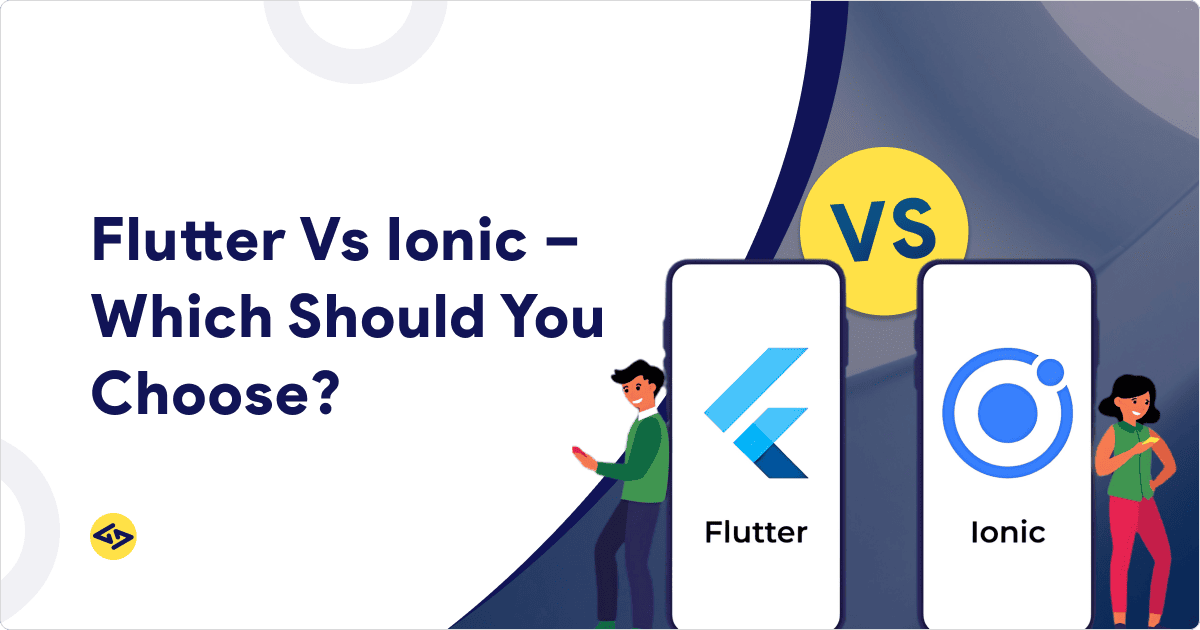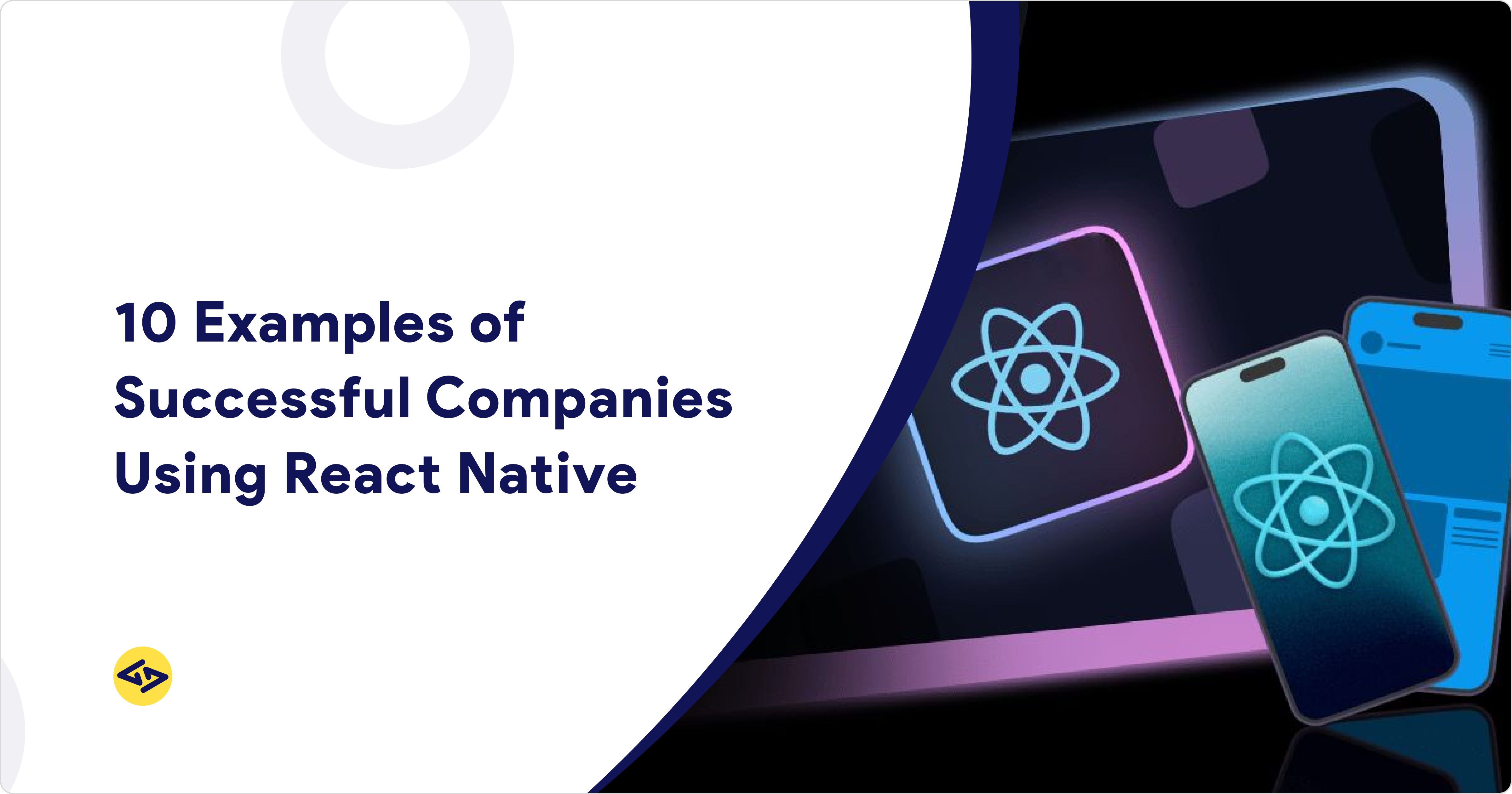Cross-platform app development has become essential for businesses aiming to reach users across multiple platforms. Building separate apps for iOS, Android, web, and desktop can be costly and time-consuming.
Frameworks like Flutter and Ionic are widely discussed in the Flutter vs Ionic comparison 2025, as they allow developers to create high-quality apps from a single codebase. Each framework differs in performance, design, and workflow, making the choice critical for project success.
This guide provides a clear comparison between Flutter and Ionic, highlighting Flutter’s pros and cons, Ionic vs Flutter strengths, and key considerations for hybrid app frameworks. By exploring these points, you can make a well-informed decision for your project.
For a deeper dive into why Flutter is becoming a strong choice for enterprises, check out our detailed blog on Flutter for Enterprises.
What is Flutter?
Flutter is Google’s open-source UI toolkit for building apps that run on mobile, web, and desktop from a single codebase. It allows developers to create high-performance, visually appealing applications without writing separate code for each platform.
Core Language:
- Flutter uses Dart, a programming language designed for fast, reliable, and scalable mobile development.
How It Works:
- Flutter does not rely on native UI components. Instead, it uses a custom rendering engine and pre-built widgets to create the interface.
- Widgets are highly customizable, allowing developers to replicate native iOS and Android designs or create entirely new designs.
Key Strengths:
- High performance on mobile apps with smooth animations and transitions.
- Consistent UI across platforms thanks to reusable widgets.
- Growing community and ecosystem, with many plugins and resources available.
Limitations:
- Requires learning Dart, which is less common than JavaScript.
- Web performance is not as strong compared to native web technologies.
- Smaller developer pool, which may increase hiring costs.
Flutter is best suited for mobile-first apps, UI-intensive applications, and projects where performance and smooth animations are critical. You can also explore why many businesses prefer it in our article Why Use Flutter.
What is Ionic?
Ionic is an open-source framework that lets developers build cross-platform apps using standard web technologies like HTML, CSS, and JavaScript. It allows a single codebase to run on mobile, web, and desktop, including Progressive Web Apps (PWAs).
How It Works:
- Ionic apps run inside a WebView or native container using Capacitor or Cordova.
- It uses Web Components for the user interface, which are flexible and compatible with frameworks like Angular, React, or Vue.
Key Strengths:
- Built on familiar web technologies, it reduces the learning curve for developers.
- Supports multi-platform deployment including mobile, web, desktop, and PWAs.
- Highly flexible and enterprise-ready, suitable for large-scale applications.
- Large developer community and extensive plugin ecosystem.
Limitations:
- Slightly lower performance for graphics-heavy or animation-intensive apps.
- Relies on WebView for mobile performance, which is not fully native.
- UI consistency may require extra effort for highly customized designs.
Ionic is ideal for multi-platform apps, enterprise tools, and projects that prioritize fast development using existing web skills.
Flutter vs Ionic: Detailed Comparison to Choose the Right Framework
- Choosing the right cross-platform framework can greatly impact the success of your app.
- Flutter and Ionic are both popular options, but they differ in approach, performance, design, and flexibility.
Language and Development Approach
- Flutter:
- Flutter uses Dart, an object-oriented, strongly-typed programming language developed by Google.
- Its hot reload feature allows developers to instantly preview changes, speeding up development.
- Dart is less common, so finding skilled developers may require extra effort.
- Flutter uses Dart, an object-oriented, strongly-typed programming language developed by Google.
- Ionic:
- Ionic relies on standard web technologies such as HTML, CSS, and JavaScript.
- It integrates seamlessly with Angular, React, and Vue.
- Live updates and fast development cycles make onboarding easier, especially for web developers.
- Ionic relies on standard web technologies such as HTML, CSS, and JavaScript.
Performance and Speed
- Flutter:
- Flutter delivers near-native mobile performance.
- It is ideal for apps with complex animations, rich graphics, or heavy UI transitions.
- Developers can access device features directly through plugins.
- Web performance may be slower due to larger bundle sizes.
- Flutter delivers near-native mobile performance.
- Ionic:
- Ionic runs on web platforms, providing consistent performance across mobile, web, and desktop.
- Native device features are accessible through Capacitor or Cordova.
- Apps with heavy animations may require additional optimization.
- Ionic runs on web platforms, providing consistent performance across mobile, web, and desktop.
User Interface and Design
- Flutter:
- Flutter offers a rich set of customizable widgets for creating pixel-perfect iOS and Android interfaces.
- It supports both Material Design and Cupertino widgets to ensure UI consistency across devices.
- Flutter offers a rich set of customizable widgets for creating pixel-perfect iOS and Android interfaces.
- Ionic:
- Ionic uses flexible Web Components to deliver responsive and consistent UI across platforms.
- It integrates easily with existing CSS frameworks, simplifying UI maintenance for web-focused applications.
- Ionic uses flexible Web Components to deliver responsive and consistent UI across platforms.
Cost and Development Time
- Flutter:
- The niche nature of Dart may increase hiring costs.
- Reusable widgets and hot reload significantly speed up UI development for complex apps.
- The niche nature of Dart may increase hiring costs.
- Ionic:
- Ionic can be more cost-effective because of the large pool of web developers.
- Multi-platform projects can launch faster, particularly when the team has web development experience.
- Ionic can be more cost-effective because of the large pool of web developers.
Community Support and Longevity
- Flutter:
- Backed by Google, Flutter offers extensive documentation, tutorials, and a growing library of plugins.
- Some niche features are still evolving and may lack full support.
- Backed by Google, Flutter offers extensive documentation, tutorials, and a growing library of plugins.
- Ionic:
- Ionic has a mature community of over 5 million developers and a robust plugin ecosystem.
- Its reliance on open web standards ensures stability and longevity.
- Ionic has a mature community of over 5 million developers and a robust plugin ecosystem.
Deployment Options and Flexibility
- Flutter:
- Flutter is primarily mobile-focused.
- Web and desktop support is improving, but additional setup is often required.
- Flutter is primarily mobile-focused.
- Ionic:
- Ionic excels at multi-platform deployment, supporting mobile, web, desktop, and Progressive Web Apps (PWAs) from a single codebase.
- Its web-standard architecture makes CI/CD integration simpler.
- Ionic excels at multi-platform deployment, supporting mobile, web, desktop, and Progressive Web Apps (PWAs) from a single codebase.
Skill Transferability and Long-Term Value
- Flutter:
- Flutter and Dart skills are mostly framework-specific.
- This makes Flutter ideal for startups prioritizing mobile-first apps.
- Flutter and Dart skills are mostly framework-specific.
- Ionic:
- Ionic teaches web standards that are transferable across multiple frameworks.
- It offers flexibility for teams planning multi-platform or web-centric projects.
- Ionic teaches web standards that are transferable across multiple frameworks.
Security Considerations
- Flutter:
- Flutter provides strong security when combined with native APIs.
- Developers have direct control over sensitive app logic.
- Flutter provides strong security when combined with native APIs.
- Ionic:
- Ionic’s security depends on web best practices.
- Enterprise-grade security is achievable through careful use of plugins and coding standards.
- Ionic’s security depends on web best practices.
Best Use Cases
- Flutter:
- High-performance, mobile-first applications.
- Animation-heavy apps and games.
- Startups targeting iOS and Android.
- High-performance, mobile-first applications.
- Ionic:
- Multi-platform applications spanning web, mobile, and desktop.
- Progressive Web Apps (PWAs).
- Enterprise apps leveraging web development teams.
- Apps requiring frequent updates across multiple platforms.
- Multi-platform applications spanning web, mobile, and desktop.
Takeaway:
- Flutter is best suited for apps that demand native-like performance and visually rich interfaces.
- Ionic is ideal for projects that need flexibility, rapid multi-platform deployment, and strong web integration.
- Ultimately, the choice depends on your project goals, budget, target platforms, and the expertise of your development team.
Learn more about our Flutter app development services and get started today.
Comparison Table -Flutter vs Ionic Comparison 2025
| Aspect | Flutter | Ionic | Notes |
| Language | Dart | HTML, CSS, JS | Ionic uses widely known web tech; Flutter requires Dart. |
| Performance (Mobile) | Excellent | Very good | Flutter excels for heavy animations; Ionic is sufficient for standard apps. |
| Performance (Web/PWA) | Poor | Excellent | Flutter web is heavy; Ionic web apps load faster. |
| UI & Design | Proprietary Widgets | Web Components | Flutter widgets are fully custom; Ionic components follow web standards. |
| Development Cost & Time | Higher (smaller talent pool) | Lower (large web dev pool) | Ionic allows faster development if you have web devs. |
| Community & Support | Google-backed, growing | 5M+ developers, enterprise support | Ionic offers more mature support for enterprise projects. |
| Deployment Options | Mobile & Desktop (web in preview) | Mobile, Desktop, Web, PWA | Ionic is more flexible across platforms. |
| Skill Transferability | Flutter only | Web skills transferable | Skills learned in Ionic are useful beyond Ionic projects. |
| Best Use Cases | Mobile-first apps, rich animations | Multi-platform apps, PWAs, enterprise tools | The decision depends on project goals. |
Summary:
- Flutter = high-performance mobile apps.
- Ionic = flexible, multi-platform apps with a web-first approach.
If you’re also considering whether to go with Flutter or native development, our guide Flutter vs Native highlights practical differences for businesses making this decision.
Conclusion: Pick the Perfect Framework for Your App
Flutter and Ionic each have unique strengths. Flutter offers high performance, smooth animations, and mobile-first capabilities, while Ionic provides flexibility, multi-platform support, and faster development for web-savvy teams.
The right choice depends on your business needs—mobile-first apps or multi-platform solutions. It’s smart to test both frameworks with a small project before making a final decision.
When it comes to building top-quality apps, iCoderz is the best company to hire Flutter app developers. We deliver scalable, high-performance, and visually engaging applications tailored to your business goals.
Build Your App Today
Leverage Flutter or Ionic to create scalable, high-performance apps tailored to your business needs.




